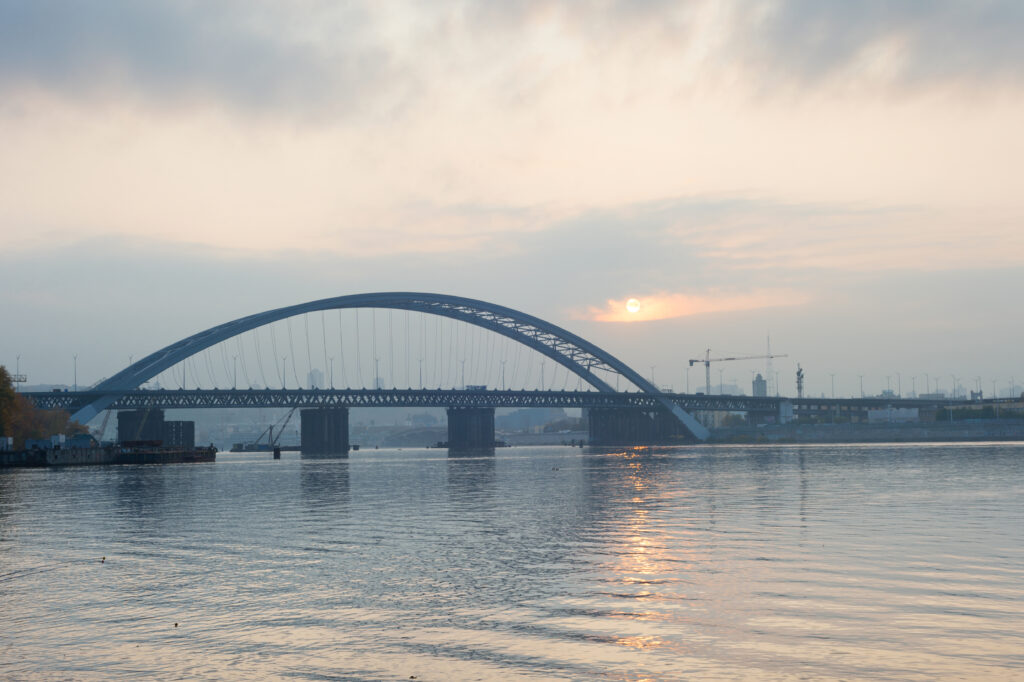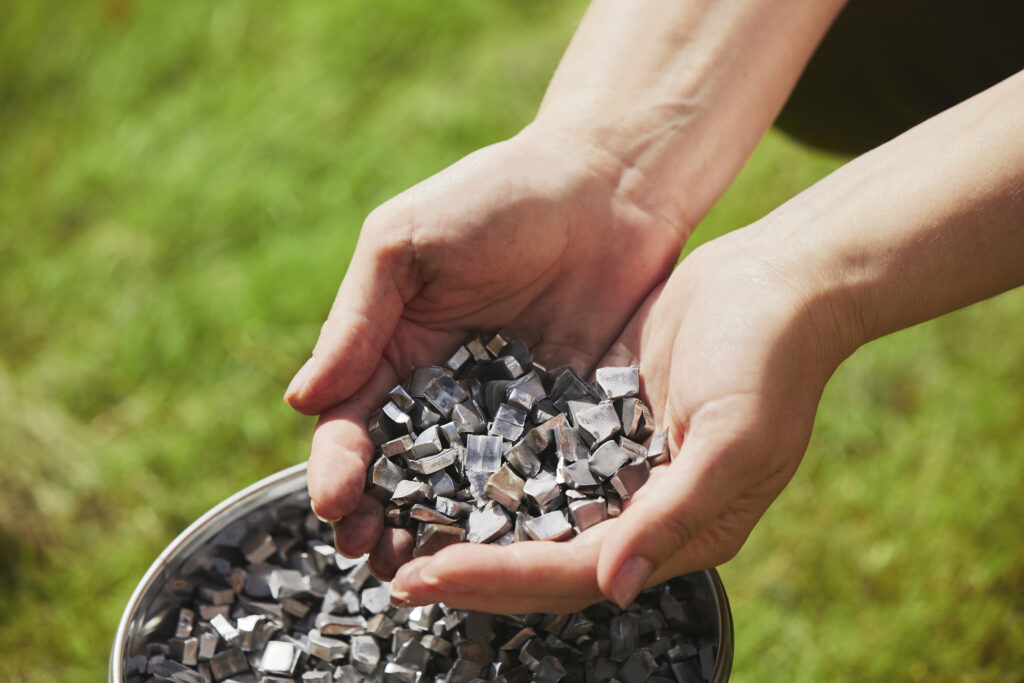Ukraine must speed up the Europeanisation of environmental policy to make headway on “building back better” and its accession to the EU.
Olya Melen-Zabramna

Amid the intensive hostilities in Ukraine, Ukrainian partners, including the EU in particular, Ukrainian top officials, international banking institutions, and civil society are banding together to plan post-war recovery. Much attention is focused on the legal framework and policy documents guiding recovery projects and planning. The slogan “build back batter”, which comprises improved energy efficiency and climate resilience through greening and decarbonisation (World Bank et al., p. 28), is widely accepted by donors and investors inside and outside the country. The EU is also enthusiastically promoting the green recovery of Ukraine and building back better. Because a significant part of the funding comes directly from the EU, it will be allocated under certain conditions and rules that are effective in the union. It is, therefore, clear that environmental issues will play a central role in the reconstruction of Ukraine.
The Association Agreement as a basis for Ukraine’s Europeanisation in the field of environment
Ukraine started its path of serious Europeanisation by signing the Association Agreement with the EU in 2014. Recently, this process has been intensified due to the launch of accession negotiations between the two parties. The main component of this process is the level of approximation of the Ukrainian legislation with the EU acquis. The general public, including the NGO Environment-People-Law, plays a key role in supervising the law- and policy-making process to ensure that the approximation efforts meet environmental protection goals and concord with the EU acquis.
The Association Agreement paved the road for a new legislative framework in the spheres of climate change, waste management, water quality and its management, nature protection, industrial pollution and chemicals, genetically modified organisms, noise pollution, civil protection, urban environment, and environmental governance and fees. Cooperation with the EU in these areas will support Ukraine in protecting, improving, and rehabilitating the quality of the environment and human health, the prudent and rational utilisation of natural resources, as well as dealing with regional or global environmental problems. The list of EU Directives from Annex XXX of the Association Agreement in the sphere of environmental protection, governance, and climate change aims to harmonise Ukrainian legislation and policies in the environmental field and the field of sustainable development with the EU acquis. Article 363 of the Agreement stipulates that “[g]radual approximation of Ukrainian legislation to EU law and policy on environment shall proceed in accordance with Annex XXX to this Agreement”.
Slow progress in the Europeanisation of Ukraine’s environmental law
Based on the Association Agreement, a vast part of the Ukrainian environmental legislative framework was subject to changes during the course of Europeanisation. However, the progress in the approximation with EU Directives listed in the Annex XXX of the Association Agreement had been slow and faced some difficulties due to multiple reasons. Numerous environmental directives aim to regulate the impact and use of the elements of the environment in many fields, affecting the business environment and shifting the old Soviet style of environmental management and regulations, as well as environmental control.
Despite these obstacles, the changes to Ukrainian legislation in the sphere of environmental governance and its integration into other policy areas have been considerably swift as it was also based on the necessity to implement the provisions of the Aarhus Convention, ratified by Ukraine in 1999. Thus, the legislation on environmental impact assessment, strategic environmental assessment, access to public information and digitalization of information, data bases, permits and decisions assisted Ukraine in creating the necessary European legal framework of environmental governance.
Ukraine’s air quality legislation lacked various regulations around the emissions of certain pollutants, and Annex XXX contained six key Directives that Ukraine needed to implement. For instance, to approximate Ukraine’s legislation with the Directive 2008/50/EC on ambient air quality and cleaner air for Europe, Ukraine had to adopt legislation on the state air monitoring and appoint the authorised body in this area, as well as to draft a procedure for establishing targets and maximum permissible values and the objective of mitigating of emissions of particulate matter (PM) 2.5 (i.e., fine inhalable particles, with diameters that are generally 2.5 micrometres and smaller, a mixture of solid particles and liquid droplets found in the air). In August 2019, the government of Ukraine adopted the Rules of State Monitoring of Air. It defines the mechanisms of state air monitoring, coordination of central and local executive environmental protection bodies, informational support of those bodies for sound decision-making, and informing the public on air quality. The rules define the division of the territory of Ukraine into zones and agglomerations for the purpose of air monitoring. However, the war has severely impeded the implementation of these rules by local and regional authorities, and the parliament still has not regulated the emissions of PM 2.5 in Ukraine.
In the field of waste management, Ukraine made significant efforts to launch the reform by adopting the Framework Law on Waste Management, which implements Directive 2008/98/EC on waste and partially Directive 1999/31/EC on the landfill of waste. A few other waste-related laws and by-laws are being drafted and advocated by the Ministry of Environmental Protection, the Ukrainian expert society and European institutions to set up clear rules in the waste sector for investors and other stakeholders. These rules are crucial for the recovery of Ukraine and the management of waste created by the hostilities with the goal of minimising the impact on the environment and human health.

As part of the EU accession process, Ukraine must also establish clear rules for the rational use and management of water resources. The approximation of six key EU directives in the water management area is currently on the agenda of the Ukrainian parliament. Ukraine made partial progress in this exercise and transposed some Directives into national legislation. However, the Directive concerning the protection of waters against pollution caused by nitrates from agricultural sources still requires approximation. Legislation on urban waste-water treatment was passed during the full-scale war and requires the adoption of numerous by-laws to start its full application by key stakeholders.
Progress on legislation addressing industrial pollution and hazards mirrors this pattern. While crucial laws have been recently passed, their implementation remains distant. This is partly due to the inclusion of exemptions and extensions for businesses during the period of martial law. But at this time, businesses and investors received clear signals from the parliament that the rules on integrated pollution permits will be obligatory and that the best available technologies (BAT) must be implemented for certain types of economic activities.
Climate change emerges as Ukraine’s most pressing regulatory challenge, with the Association Agreement mandating legislation on greenhouse gas emissions trading. However, progress has stalled. Legislative efforts on climate change have been sluggish, often facing strong opposition from large corporations. This gap demands urgent parliamentary action to integrate the EU emissions trading system into Ukraine’s economic framework. The current piecemeal approach to climate-related legislation lacks coherence and a clear strategy for establishing a greenhouse gas emissions trading scheme in Ukraine.
EU legislation on nature protection should serve as the foundation for new national standards in protecting nature and conserving birds, flora, and fauna. This area was previously neglected by the government, so Ukraine must now undertake the task of aligning with two EU Directives on the conservation of birds, flora, and fauna. This crucial effort will help safeguard fragile natural ecosystems from potential destruction during Ukraine’s future reconstruction.
Ukraine and the EU Green Deal – ambitious goals, but still a long way to go
Ukraine has made high-level political pledges to align with the EU Green Deal policy, which steers the European Union toward climate neutrality. But these political declarations have to be converted into national policy documents in many areas, and supported by numerous legislative acts and national enforcement frameworks. Necessary policy-making activities in Ukraine are missing, and martial law has both complicated and prolonged the process. As the prospect of rebuilding Ukraine after the war is coming closer and the recovery is high on the agenda of international investors, Ukrainian green policy development has gained momentum. It is obvious that rebuilding Ukraine should follow a sustainable path, and the EU showed signals that support of such efforts would extend to Ukraine, including significant financial allocations. Thus, the shift of the national economy toward a circular economy, the development of a Ukrainian-style Green Deal, and changes in the rules of play for business on the use of natural resources are inevitable, regardless of the opposition of the business sector. The war should not be used as a reason for delays in policy and law-making. Indeed, the EU has made it clear that Ukraine’s path to recovery must be green, and environmental concerns must be integrated into the post-war recovery process.
Improving environmental law and policy-making as a prerequisite for successful Europeanisation
In the next few months and years, Ukraine will have to convince the EU of its compliance with the environmental provisions of the Association Agreement and alignment with the norms of the European Union’s Green Deal. To achieve this, Ukraine must develop and enhance mechanisms for aligning its environmental law and policy with European standards. This involves strengthening the Ministry of Environmental Protection’s capacity for drafting legislation and intensifying advocacy efforts with parliament and civil society. These initiatives should highlight the necessity of approximation and the future benefits that new European environmental regulations will bring to both citizens and businesses. Additionally, Ukraine and the Ministry of Recovery of Ukraine should prepare a recovery strategy for Ukraine in line with the European Green Deal and reconsider Ukraine’s existing recovery plan with active public involvement to make it greener and more sustainable. Currently, Ukraine’s progress is slow, which might create additional risks during the accession process. Policy and law-making are parallel and mutually dependent processes, as the law supports the implementation of policy documents through the creation of green recovery rules. In contrast, policy documents provide the goals and specifics of the future recovery process and a shift in the economic development model of Ukraine.
Conclusions: Ukraine must speed up its reform efforts with the support of civil society
Ukraine should speed up shaping its legal framework in the following areas: waste management, air quality and water management, climate change and nature protection. Necessary policy documents have to be developed in line with the goals of the EU Green Deal. These efforts will ramp up the negotiation process on Ukrainian membership in the EU and create a sound basis for Ukraine’s green post-war recovery. Ukrainian civil society working in the area of nature protection has already indicated its eagerness and capacity to be a reliable partner in Ukraine’s European integration efforts, and this position is explicitly acknowledged by national and international stakeholders.
Olya Melen-Zabramna – In 2002, Olya obtained a bachelor’s degree from the Law School of Lviv National University named after I. Franko. In 2009, she received a Master of Law at the University of Nottingham (UK). At present Olya is the head of the legal unit at the NGO “Environment-People-Law” in Lviv. In 2006, she was awarded the Goldman Environmental Prize for Europe. Olya is a member of the Ukrainian Bar Association and holds an attorney certificate. She has more than 20 years of experience working in the environmental field, with professional experience in commenting on planned measures and analysing policy, strategies, and law-drafts in many fields related to the environment, as well as liaising with governmental and non-governmental organizations. Olya is a member of the Environmental Law Alliance Worldwide (ELAW).